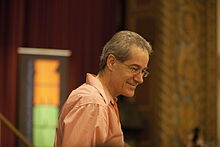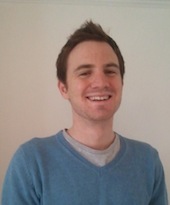Philosophical advice on ‘magic crystals’ and talking back to psuedoscience
“So Beth had this amazing thing, where she went to this guy who sorted her back out,” my mum is saying, “he uses crystals and everything.”
My wife and I are in attendance at a lonely Suffolk pub for our annual Christmas get together with both sets of parents. Conversation focuses on the back problems of middle age, the latest tale of woe about my very elderly grandma and the lives of my old school friends who never left to go to university.
I look sceptical. “Crystals?” I say, raising an eyebrow.
A few tables away a well-dressed lady and a man in wellington boots grasping a pint are stroking a dog lying by the bar.
Mum fixes me with one of her looks. “Josh, what you don’t know is, the guy could roll the crystals around on her back and tell immediately where her back hurt without even asking”.
I’m loosing it, but so as not to cause a scene in front of all the middle class people, I mutter something under my breath about what sort of person honestly believes in magical crystals.
***
For Massimo Pigliucci it was a newspaper that finally did it.

“I couldn’t believe it, I opened the newspaper, and I just said ‘what the hell is this?’” he tells me. The Tennessee legislature was trying to give creationism equal weighting with science in public schools. At the time (this was the mid-90’s) Pigliucci was an assistant professor of evolutionary biology at the University of Tennessee, Knoxville, so the development hit a nerve.
“Then it slowly came to me,” he says, “I’m in the middle of the Bible belt, first of all. Secondly, Knoxville is only 40 km away from Dayton, Tennessee which is where the Scopes trial took place in 1925. So the local people were immersed in these kinds of things.”
“Myself and some colleagues reacted, we wrote to legislators and all that, and eventually the law went nowhere,” explains Pigliucii. “But it really raised my awareness. I thought to myself: ‘Hey, we’re in the middle of this thing, so we’d better do something more pre-emptive.’”
In the end Pigliucci had what he calls a “mid-life crisis” and decided to switch careers to philosophy of science. “Some people buy a red sports car – I became a philosopher,” he says. That was in the early 2000’s, and a few years ago Pigliucci got a full time position at City University, New York. There, he spends his days writing, the keyboard alternating between his professional papers and his popular blog, Rationally Speaking.
***
The week after Christmas I’m back in Bristol where I sit down in my flat and call Pigliucci. He’s editing a forthcoming book on the philosophy of pseudoscience, and I had wanted to talk to him about that. But, remembering those magic crystals, I somehow end up having a much more personal conversation.
“You’re a philosopher of science,” I say, “and you communicate with the public. Any advice on my mum and her empathy for crystal-based back therapies?”
“My suggestion is not to go for the straightforward rationalistic argument,” says Pigliucci. That often just doesn’t work with true believers. “It’s more of the occasional comment, and asking people to explain to you how they think things work.”
I say I’m not sure if I would describe my mum as a true believer. For her, the issue is that these alternative therapies seem to give results, rather than that she actually ‘believes’ in them. She accepts that they are probably placebos (although she might not use that word), but has that post-modernist attitude of ‘that’s OK, if it works for you.’
I put this problem to Pigliucii (and begin to feel like perhaps I’m taking the whole thing a bit too far).
“That argument can be approached a little more directly,” he says, “because you can turn those things into an interesting conversation about the value of anecdotal evidence, as opposed to standardised clinical trials.”
On reflection, it seems like the advice I’ve been given is basically: ‘do public engagement with science.’ Perhaps I shouldn’t have expected anything else. Pigliucci says this is exactly what he’s is trying to do with his blog and podcasts. As well as broadcasting, he says he listens and responds to comments, and directs people to things they might find interesting.
So in future I’ll be having more conversations with my mum about evidence. Thanks for the advice, Pigliucci.
—
Notes
Just in case you think I’m a monster who writes mean things about his mum for kicks – I ran this past her before publishing, and she agreed not to disown me.
I first got interested in Pigliucci’s blog because of a book he’s edited called ‘The Philosophy of Pseudoscience.’ That will be coming out later this year, and when it does I’ll be covering one particularly interesting chapter on this blog.
—
 Josh Howgego spent the last four years peering into round bottomed flasks, working on a chemistry PhD. Now he has turned his hand to writing about science, and is currently studying science communication at Imperial College London. Follow on Twitter: @jdhowgego
Josh Howgego spent the last four years peering into round bottomed flasks, working on a chemistry PhD. Now he has turned his hand to writing about science, and is currently studying science communication at Imperial College London. Follow on Twitter: @jdhowgego
